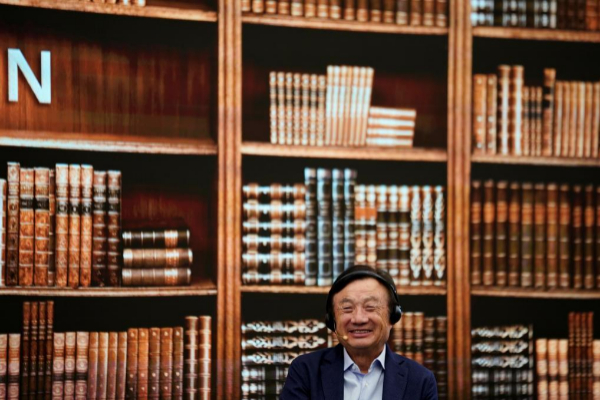- CEO "The US veto harms American companies"
- Smartphones: The asiatification of mobile sales
Huawei premiered its Mate 30 Pro model on Monday in Spain, a phone that already suffers the consequences of US restrictions on the Chinese brand. Google, a California-based company, has limited some of the Android operating system applications for this Asian manufacturer, noted by the Donald Trump government.
In Huawei they remain attentive to the calendar for that last reason, rather than the launch of their new device. This Tuesday the last extension of the Department of Commerce expires so that North American companies can maintain their commercial relations with Huawei, the second largest manufacturer of phones in the world and the global leader in the deployment of 5G networks.
The Chinese company has achieved a new extension of three months , so that it raffles again the veto, which as of this Tuesday would have been applied by North American suppliers, from Google, with its Android operating system to other North American companies that provide components Huawei devices, see Intel, Xilinx and Broadcom .
The Commerce Department has granted a new 90-day or three-month moratorium to the Chinese company, as happened in August .
The US encirclement of the Chinese company dates back to May, when Trump issued an order to restrict his Executive's relations with "foreign adversaries" in the technological field and, in parallel, the Commerce Department included Huawei in a list Black of banned companies.
However, a few days later, also in May, the US established a first extension for Huawei, 90 days, renewed three months later, in August, the latter expiring on November 19.
Despite the veto, the Asian company has continued to gain turnover and market share in smartphone sales: it has increased its global revenues by 24.4% in the first nine months of the year, while distancing itself from the third market manufacturer, Apple, precisely North American.
The veto impacts the new Huawei Mate 30
The inclusion in that entity list has made the Huawei Mate 30 (including the Pro format) the first device of the brand that incorporates Huawei's own application store, called the App Gallery, replacing the Google Play Store . If a user wishes to download Google Maps or the Gmail mail service, he can do so, but by default he finds the replacements of the HMS package (Huawei Mobile Services), which is installed on the phone.
Huawei, however, continues to use the Android operating system in its open Open Source version, from Google, on which it places its own custom layer of the Chinese brand, the EMUI 10. "We continue in transition, working on the development of our own operating system, Harmony, and now harder than before, "Fabio Arena, Huawei product director in Spain, tells EL MUNDO.
The company's forecast, although not official, is that the Huawei Mate 40 can see the light the first half of 2020 without the US operating system set up by Google. As Arena indicates, the coincidence of Mate 30 with the US decision regarding the veto "is only a coincidence."
The clash of the United States and China
The veto on Huawei is framed a priori in the tariff war that they maintain in different sectors of the US and China, but Abraham Liu, vice president of the company and president of Public Relations for Europe, disagrees. "Many people think that both issues have to do, but it is not like that. Tariffs do not harm us : the only thing that does have an impact is the inclusion on the blacklist . And that has nothing to do with the trade war," affirmed this director in a meeting with media in which this newspaper participated.
Tony Jin Yong, CEO of Huawei in Spain, stresses that it is American companies that are being harmed by the restrictions of that country, "economically and reputationally", by ceasing to have a commercial relationship with the Chinese company, as he explained in an interview With this newspaper.
As a manufacturer, Huawei has a residual role in the US, very different from the one accredited, for example, in Spain, where it sells mobile phones only behind the South Korean firm Samsung. However, the company led by Ren Zhengfei maintains an outstanding position to develop, also in the US, 5G networks, the standard of mobile communications of the future. As the world's first telecommunications equipment company, Huawei could take advantage in that country with wireless transmissions that have to spread throughout rural America.
According to the criteria of The Trust Project
Know more- Spain
- Europe
- Donald Trump
- China
Telephony The 473 million euros of the Mobile World Congress of Barcelona, on the air
Diplomatic crisis US studies economically sanction Spain for helping the Maduro regime, according to Bloomberg
More mergers? Car brands: in search of profitability

